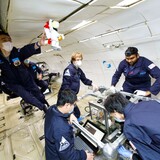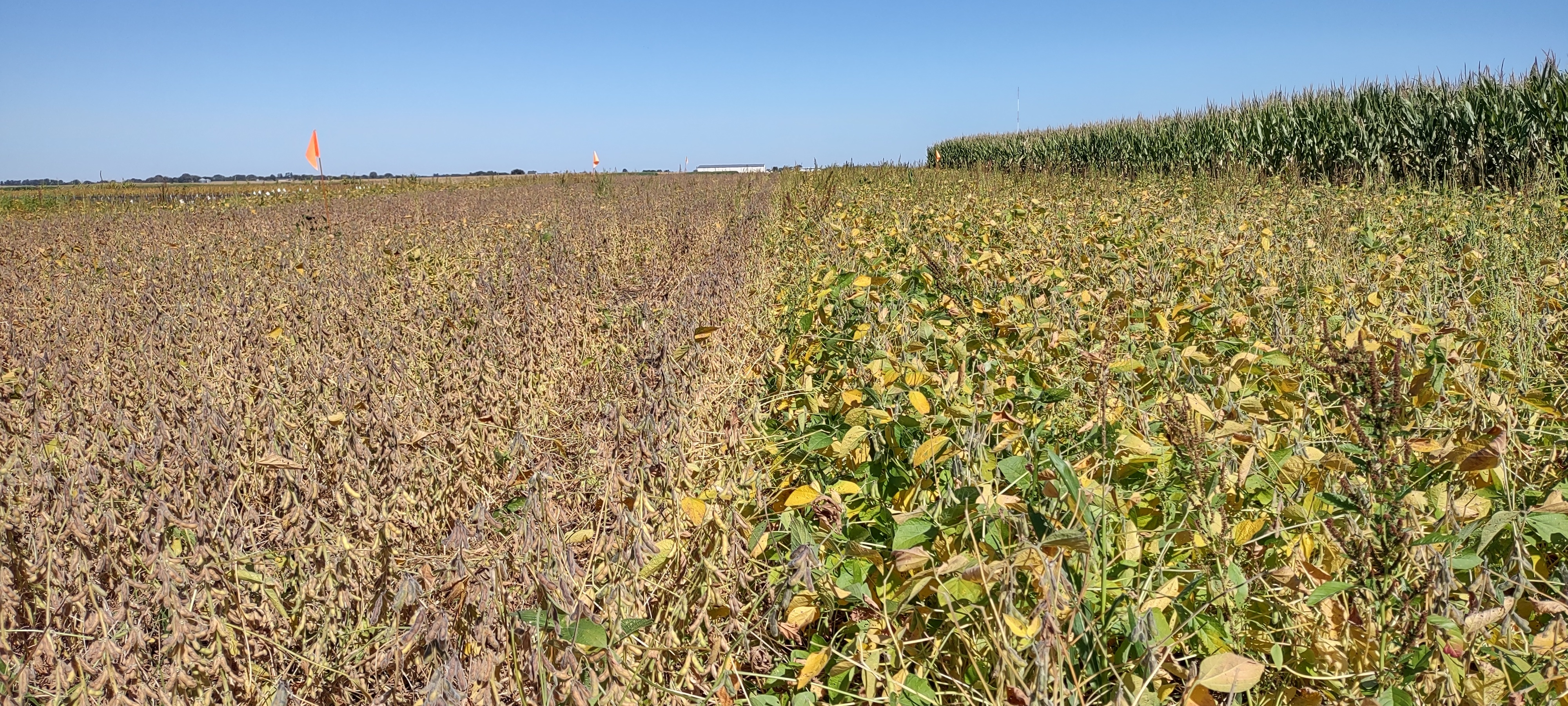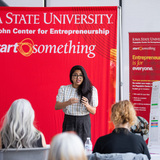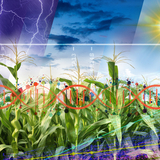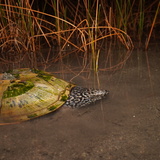News Archive
Tuesday, December 10 2024
-
Iowa State inventors recognized by NAI for tackling real-world issues
Two Iowa State University innovators – with a combined 141 patents to their credit – have been selected by the National Academy of Inventors (NAI) for its 2024 Class of Fellows. The NAI Fellowship is the highest professional distinction awarded solely to inventors.
-
Nanoink, printing technologies could enable electronics repairs, production in space
Researchers tested new nanoink and printing technologies on the "roller coaster" of NASA microgravity flights. They demonstrated that electronic circuits can be printed in zero gravity. That could lead to astronauts printing electric circuits for spacecraft and equipment repairs. The technologies could also lead to manufacturing high-value electronics in the special environment of space.
-
Growing soybeans has a surprisingly significant emissions footprint, but it’s ripe for reduction
Over a typical two-year rotation of corn and soybeans, 40% of nitrous oxide emissions are in the fertilizer-free soybean year, according to new Iowa State University research. Winter cover crops and planting soybeans earlier could reduce emissions of the potent greenhouse gas by one-third while increasing yields.
-
Iowa State is #1 in Iowa, #14 nationally in latest entrepreneurship rankings
Iowa State University is ranked #1 in Iowa, #6 in the Midwest and #14 nationally in the 2025 Top 50 Entrepreneurship Undergraduate rankings by The Princeton Review and Entrepreneur. The rankings consider more than 40 data points including academic offerings, mentorship and experiential learning opportunities.
-
Linking data on genetics, traits and environment gives crop breeders a wider lens
The interplay between the genetic makeup of crops and the conditions in which they grow is difficult to untangle. A research team led by an Iowa State University professor aims to help breeders analyze the interactions to make crops more resilient and productive.
-
A new wrinkle in turtles: Their genomes fold in a unique way, researchers find
A new study led by an Iowa State University evolutionary biologist described for the first time the three-dimensional architecture of turtle genomes, which fold in a configuration unlike any other animal observed so far.

